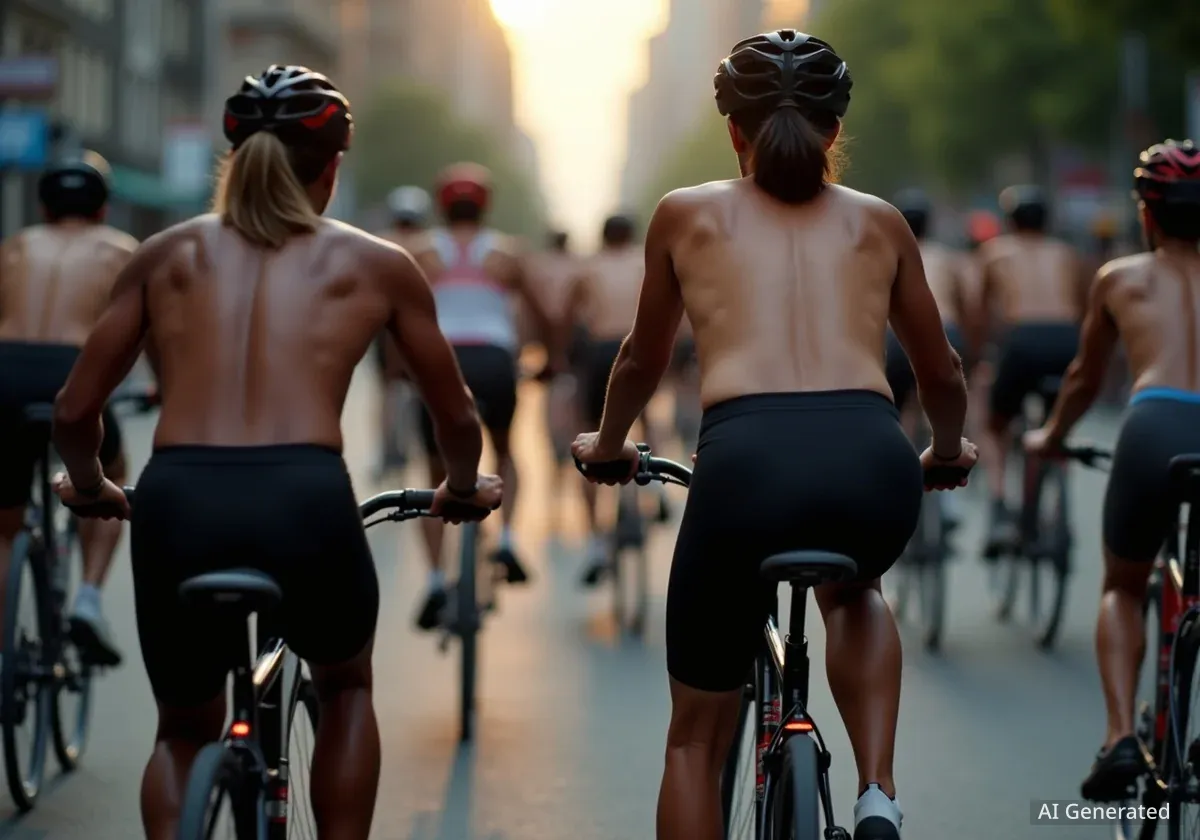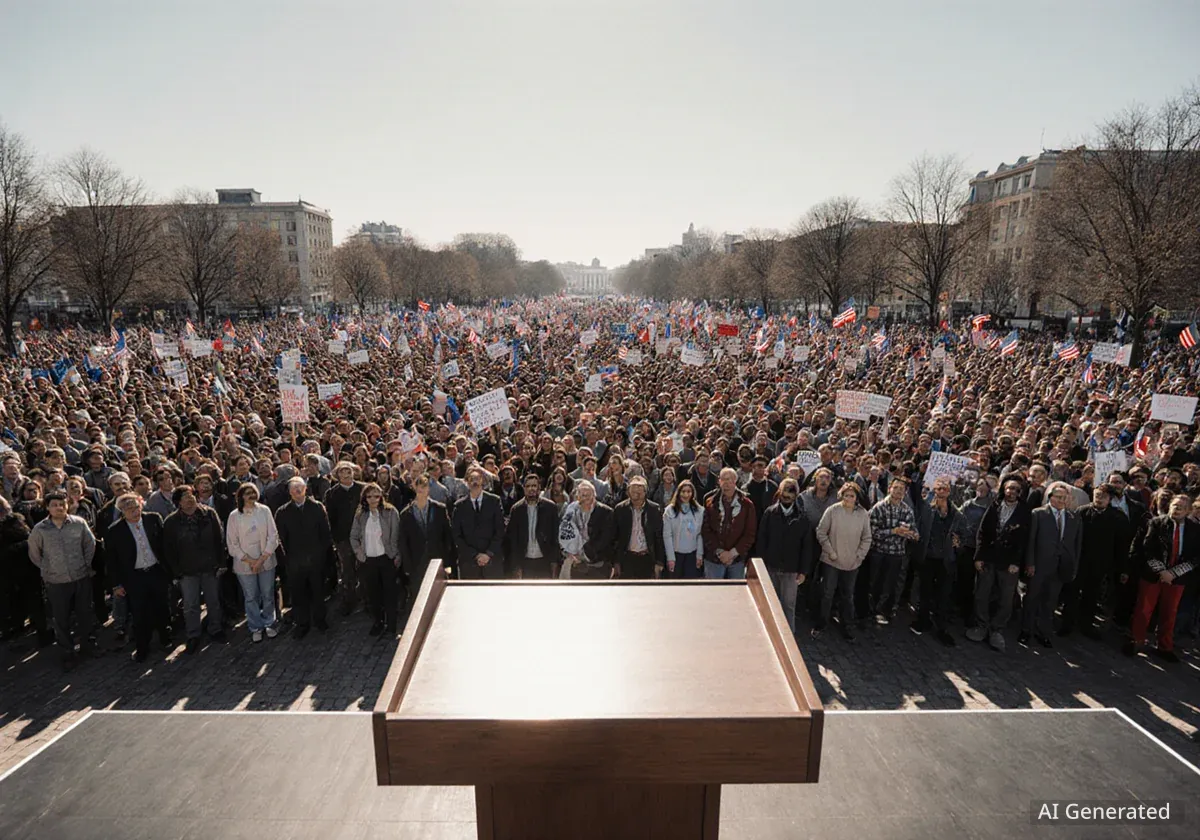A protest group in Portland, Oregon, has announced plans for a naked bicycle ride in response to the deployment of National Guard troops to the city. Organizers stated the event is a direct reaction to what they describe as the "militarization of our city" following the federal government's decision to send forces to address what it termed "domestic terrorists."
The planned demonstration highlights ongoing tensions between federal authorities and some local residents in Portland, a city with a long history of public protests and counter-cultural events. The deployment was authorized by the President, who characterized the city as "war-ravaged."
Key Takeaways
- A Portland organization is planning a naked bike ride to protest the presence of National Guard troops.
- The demonstration is a response to what organizers call the "militarization" of the city.
- The troop deployment was ordered by the President to counter alleged "domestic terrorists."
- Portland has a well-established history of using unconventional protest methods, including public nudity.
Federal Intervention and Local Reaction
The decision to deploy National Guard troops to Portland marks a significant escalation in federal involvement in the city's affairs. According to official statements, the deployment is intended to quell unrest and target specific groups labeled as domestic threats. This move has been met with sharp criticism from various local officials and community groups who argue it infringes on civil liberties and escalates tensions unnecessarily.
In response, activists have turned to a familiar form of local protest. The naked bike ride is being promoted as a peaceful and visually striking way to challenge the federal narrative and presence. An organizer for the event stated the purpose is to counter the heavily armed troops with a display of human vulnerability and peaceful dissent.
A History of Federal Presence in Portland
Portland has previously been a focal point for federal law enforcement deployments, particularly during the widespread protests of 2020. During that time, federal agents were sent to protect federal property, leading to nightly clashes with protesters. These events sparked a national debate about the role of federal forces in cities without the explicit request of local government.
The Protest's Unique Form
While unconventional, the use of public nudity as a form of protest is not new to Portland. The city is home to the annual World Naked Bike Ride, which draws thousands of participants to advocate for cyclist safety and body positivity. Organizers of the current protest are leveraging this established cultural practice to draw attention to their political message.
Symbolism Behind the Demonstration
The choice of a naked bike ride is highly symbolic. Proponents argue that it serves several purposes:
- De-escalation: The act of appearing without clothing in front of armed personnel is intended to be disarming and non-threatening.
- Media Attention: The unusual nature of the protest is almost certain to attract significant media coverage, amplifying the organizers' message.
- Vulnerability as Strength: By displaying physical vulnerability, protesters aim to contrast their peaceful intentions with the military-style equipment of the federal troops.
The event announcement calls on participants to join the ride "in response to the militarization of our city." This framing positions the demonstration as a direct challenge to the perception of protesters as violent agitators.
"We are responding to the presence of militarized forces in our streets with a peaceful expression of our freedom and humanity. It is a stark contrast we want the world to see."
Political Context of the Deployment
The federal government's characterization of Portland as a "war-ravaged" city experiencing a surge in "domestic terrorism" has been a key justification for the troop deployment. This language has been disputed by many local leaders, including the mayor's office, who argue that it is an exaggeration for political purposes.
Portland's Protest Culture
Portland's reputation as a center for activism dates back decades. The city has seen major demonstrations related to environmental issues, anti-war movements, and civil rights. This history has fostered an environment where creative and non-traditional protest methods are often employed to capture public attention.
Critics of the federal intervention suggest that it is part of a broader political strategy to create a narrative of lawlessness in cities governed by political opponents. They point to the timing of the deployment and the strong rhetoric used as evidence that the move is less about public safety and more about political messaging. Supporters of the President's decision, however, maintain that local authorities have failed to control violent elements within protest movements, making federal action necessary to restore order and protect federal property.
Community and Official Responses Vary
The announcement of the naked bike ride has generated a range of reactions. Supporters see it as a creative and quintessentially "Portland" way to handle a serious political issue. They praise the non-violent approach and the use of satire to confront what they view as an overreach of federal power.
However, not all residents are supportive. Some have expressed concerns that the protest could detract from the serious issues at hand or be used by opponents to paint the city's residents as frivolous or unserious. There are also practical concerns about public order and the potential for confrontation between protesters and the deployed troops.
Local law enforcement has yet to issue a formal statement on how they plan to manage the event. The interaction between city police, federal troops, and the protesters will be closely watched. Past events in Portland have shown that the dynamic between different law enforcement bodies can be complex and sometimes contentious, adding another layer of uncertainty to the planned demonstration.





